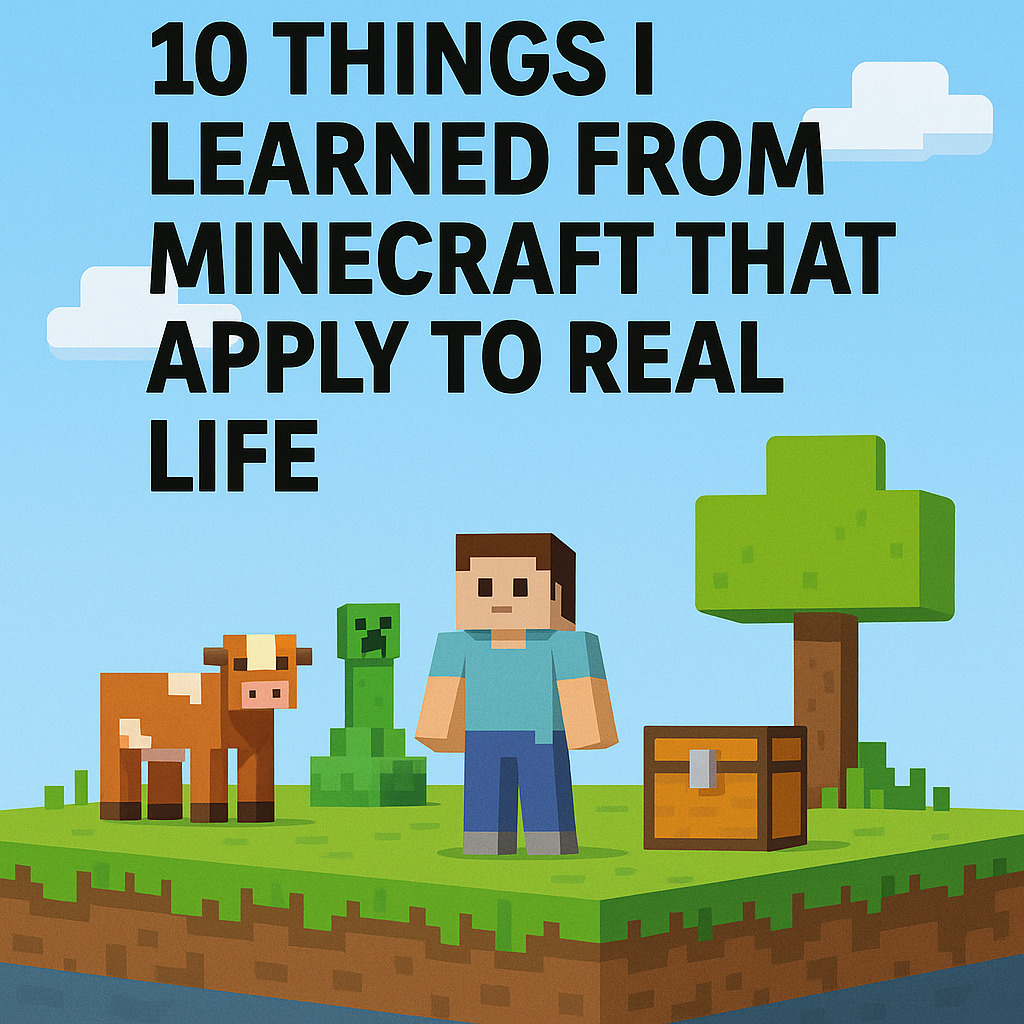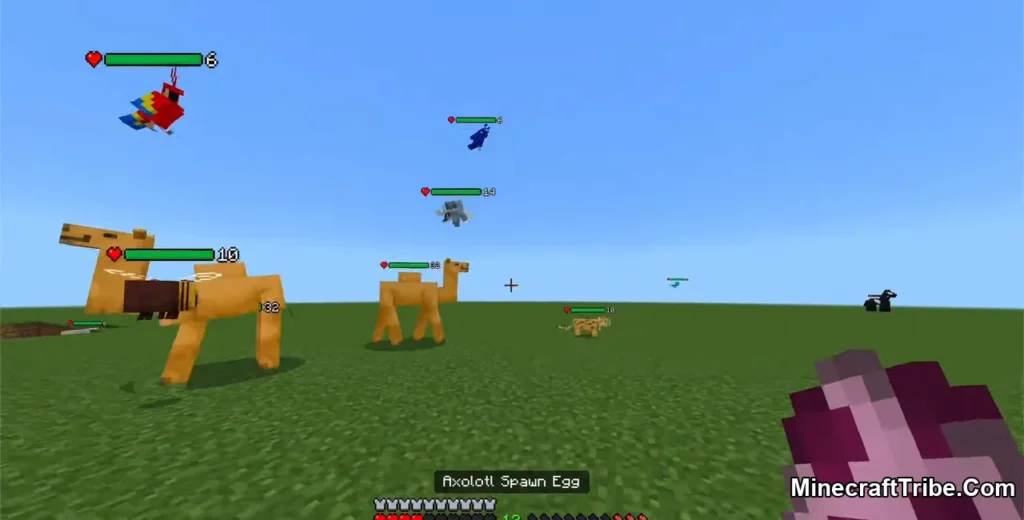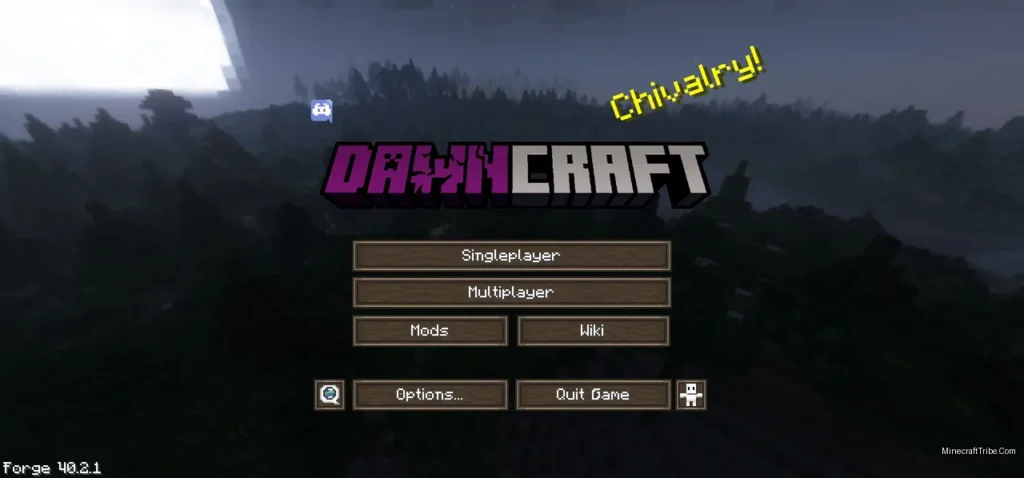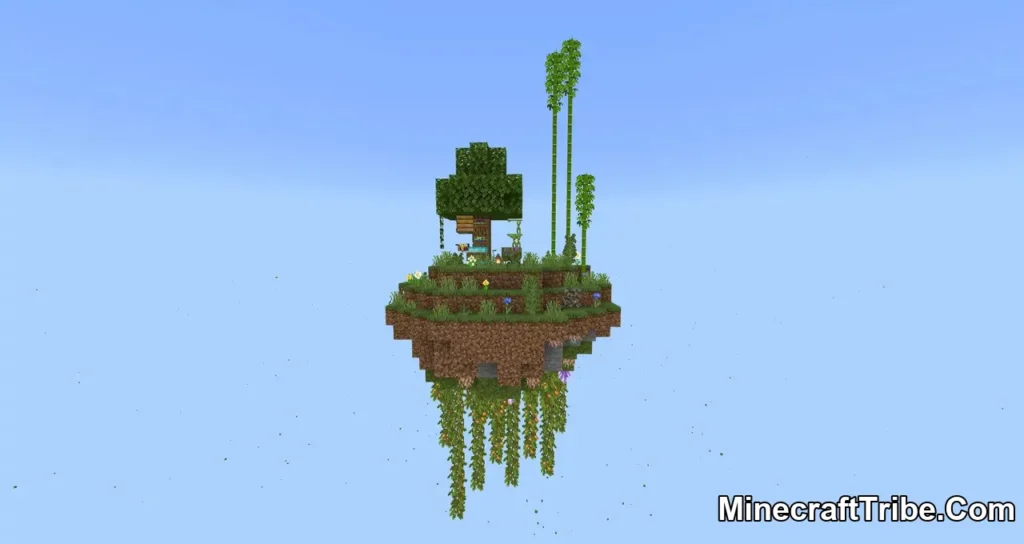When people hear “Minecraft,” they often think of kids placing blocks, fighting zombies, or building pixel art castles. But for me, it became something deeper. As someone who works full-time and only has a small window of time to play games, Minecraft turned into more than just a hobby. It became a mirror. It revealed parts of myself I hadn’t paid attention to and quietly taught me lessons that followed me into the real world.

1. Hurting Without Intention Is Still Hurting
One of the first moments that struck me in Minecraft was accidentally hitting a chicken while trying to break some grass. It panicked and ran away. It was such a small, silly moment — but it made me pause. I hadn’t meant to scare it, but I did. And it reminded me of how, in real life, I sometimes say things offhandedly, not realizing how they affect others.
Minecraft taught me: just because you didn’t mean to hurt doesn’t mean no one got hurt. It made me more aware, more thoughtful in how I act — even when no one is watching.
2. Villagers Never Speak, But I Learned to Listen
Villagers are quiet. They go about their routines, farming, working, hiding from monsters. They never speak — but their behavior says everything. When danger approaches, they run. When a bell rings, they gather. When crops are ready, they work.
In watching them, I realized that communication doesn’t always have to be verbal. Sometimes, silence is louder. Body language, consistency, even avoidance can speak volumes. In my job, I started paying more attention to what people do, not just what they say. I became better at reading the room, understanding needs, and responding with empathy.
3. Creepers: Sudden Loss, Unavoidable Lessons
The first time a creeper blew up my chest full of resources, I sat there, stunned. All my iron, coal, tools — gone in an instant. No warning, no second chances.
In that frustrating moment, I understood something real: life doesn’t always give you time to prepare. Sometimes, things fall apart without reason. You lose what you worked for. But you keep going.
That experience helped me face unexpected setbacks in real life — missed opportunities, personal disappointments — with less anger and more resilience.
4. Stockpiling Food Taught Me the Power of Preparation
I used to ignore food. I’d rush into caves without meat, rely on the occasional apple. But once I got serious, I realized the value of being prepared. Building a wheat farm, raising animals, cooking food — all of it took time. But when night came, or I got lost underground, that preparation saved me.
In life, this became second nature: preparing for meetings the day before, packing extra chargers, saving money for emergencies. Minecraft taught me that even when things seem fine, preparation gives you freedom and safety later.
5. Labor Without Reward Feels Empty — But Diamonds Are There If You Keep Digging
Mining in Minecraft can be exhausting. You dig, and dig, and dig. For what feels like forever, there’s nothing. Just stone. It’s repetitive, slow, and often unrewarding.
But then — diamonds. That blue glimmer. And suddenly, it all feels worth it.
This taught me persistence. In real life, working toward something — a promotion, a creative goal, a healthy habit — often feels pointless at first. The progress is invisible. But if you keep at it long enough, the reward comes. Minecraft didn’t just simulate work — it showed me why patience matters.
6. Playing Alone Isn’t Always Being Lonely
There were nights I’d log in just to wander. No objectives. No monsters. Just me, the stars, the sound of water. It was peaceful. And I realized that playing alone wasn’t the same as being alone.
Minecraft gave me a space to breathe. It taught me to enjoy my own company. That translated into daily life — I no longer dreaded solo lunches, quiet evenings, or weekends without plans. I found contentment in solitude.
7. Animals in Minecraft Reflect Simplicity and Trust
The way wolves follow you after being tamed, or cats curl up next to you — it’s simple, quiet trust. You feed them once, and they stay. They don’t demand anything more. They’re just there.
It reminded me to appreciate people who offer their presence — without conditions, without noise. Friends who stay, coworkers who check in, family who don’t ask for updates but always show up when needed. Loyalty isn’t loud. Minecraft showed me that.
8. Building Isn’t Just About Structures — It’s About Identity
At first, I built ugly houses. Lopsided roofs. Windows too high. But I didn’t care. Over time, my builds became better. I started choosing color palettes, symmetry, lighting. My world slowly reflected more of who I was.
In real life, I became more intentional with my room, my desk, my habits. I realized: what I build says something about me. Whether it’s a digital house or a daily routine, building is an expression of self.
9. The World Doesn’t Rush — I Do
Minecraft has no timer. No deadlines. The sun rises and sets at the same pace. Crops grow when they grow. Time isn’t an enemy.
But in my own life, I was always rushing. Always anxious to “get somewhere.”
Playing Minecraft reminded me to slow down. That progress doesn’t have to be constant. That it’s okay to just exist some days. To do something not because it’s efficient, but because it’s calming.
10. Failure Is Part of the Game — and Life
I’ve died in lava, fallen into ravines, lost enchanted gear, and accidentally deleted worlds. Every mistake hurt. But every mistake also led me to adapt, rebuild, and sometimes even start something better.
Minecraft normalized failure. And in doing so, it helped me forgive myself more easily in real life. For decisions that didn’t work out. For risks that backfired. For not always knowing what I was doing. That forgiveness helped me grow.
Conclusion: Minecraft Was Never Just a Game
I went into Minecraft looking for a game. What I found was something closer to therapy, reflection, and silent guidance.
It taught me patience, empathy, resilience, simplicity, and trust. It didn’t preach. It didn’t reward with achievements or badges. It just let me live — and learn at my own pace.
So the next time someone asks me why a grown adult still plays Minecraft, I won’t explain the mechanics. I’ll just smile and say: “It made me better.”
And that’s enough.



